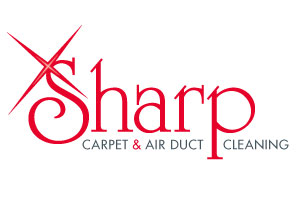Are allergies bad in Omaha? Omaha is #34 on WebMD’s list of spring allergy capitals. In 2016, allergy season started in Omaha earlier than normal, and with tree allergy season approaching at the end of February and beginning of March, pollen counts will soon be on the rise.
In this post, we offer an overview of allergies in Omaha, provide resources for those who suffer from allergies, and discuss how to get rid of allergens in your home.
Allergies in Omaha, NE
Let’s start by taking a look at the types of pollen Omaha is exposed to throughout the year. Omaha World-Herald put together a great resource detailing the allergy seasons in Omaha when different types of pollen will be in the air. Some of the takeaways from that article include:
- Tree pollen starts in late February with cedar and elm trees, but new tree pollen is introduced all the way until May with oak trees being the last to pollinate.
- Grass pollen starts in May and runs through July. Because tree and pollen do overlap for a while, spring is one of the worst times for those with allergy to both types of pollen.
- Last is weed pollen, which begins in July and is present until weeds begin to die in the fall. Ragweed is especially bad in Omaha and typically begins around Labor Day.
- Finally, with indoor and outdoor fungi and mold, dust mites, and dander from pets, it’s possible that allergies could bother someone year-round.
Omaha Allergy Resources
For those who struggle with allergies, we’ve provided some resources that might come in handy:
- Pollen Count: If you need to know what today’s pollen count is, this resource from the Asthma and Allergy Center is for you. This useful page grades pollen counts for molds, weeds, trees, and grasses individually on a scale from “absent” to “very high.”
- Pollen Forecast: Hoping to get an idea of the week ahead? There are a couple great tools for that. Both AccuWeather and Pollen.com provide a five-day forecast.
Allergies in the Home
Unfortunately, it’s pretty easy for pollen to make it into your home. By taking some simple measures recommended by Pollen.com, you can reduce allergens in your home.
- Keep your home windows closed, especially on days with high pollen counts.
- Set your air conditioner to recirculate air to prevent bringing more pollen into the home.
- Taking a bath or shower before bed helps to keep pollen from building up on your bedding (your hair collects pollen). It’s also a good idea to wash your sheets once a week.
Other tips include:
- Vacuum regularly.
- Minimize how much carpet is in your home.
- Change your air filter regularly.
- Wash clothes regularly to eliminate pollen that’s collected on them.
Reducing Allergens in the Home: Omaha Air Duct Cleaning
Though the recommendations above might help your symptoms, they won’t keep all allergens out of your home. One thing people might not think about is that dust and mold can build up in the air ducts of your home and be circulated throughout the house. This is where Omaha air duct cleaning services can help.
Though air duct cleaning is most commonly thought of as a way to get rid of indoor allergens, it can also get rid of outdoor allergens that have made their way into your home. Air duct cleaning does make a difference for allergies, as many have experienced reduced symptoms following this service. Additionally, having your air ducts cleaned once a year along with regularly changing your air filters is recommended by WebMD.
At Sharp Carpet & Air Duct Cleaning, we provide high quality air duct cleaning services with multiple benefits. Not only can we help remove the presence of allergens from your air ducts, but you’ll also experience better indoor air quality, energy bill savings due to increased efficiency, and a cleaner home due to less dust being circulated. Contact us today to learn more about our air duct cleaning services in Omaha, NE.

